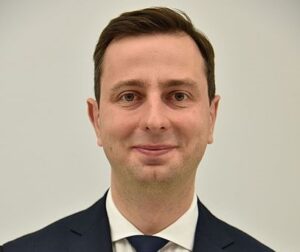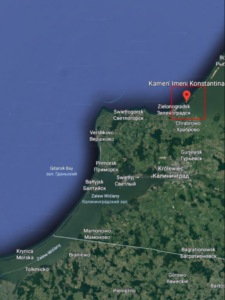Dmitry K., the Russian agent of influence deported from Poland has links with a Russian think-tank, which is a lot more than a regular analytical institution. RISI is full of former and active Russian intelligence officers. It was involved not only in the plan to swing the presidential elections in the US and Bulgaria, but also in the coup attempt in Montenegro – writes Grzegorz Kuczyński, author at BiznesAlert.pl.
The Russian Institute for Strategic Studies (RISI, in Russian) has become widely recognizable last April when Reuters reported that the US intelligence discovered that the think-tank had drafted plans to meddle in the 2016 US presidential elections. It is believed that the order was given by President Vladimir Putin himself.
RISI was established in 1992 by President Boris Yeltsin. The Institute was not built from scratch, it is the direct descendant of the former Intelligence Research Institute for the First Chief Directorate of the KGB. No wonder that for a number of years RISI provided analytical support for Russia’s Foreign Intelligence Service (SVR). Only in 2009 was it transferred to the Russian president. At that point the historian and political scientist Evgeny Kozhokin, head of the think-tank since 1994, was replaced with general Leonid Reshetnikov. An educated historian, Reshetnikov came straight from his position as head of the SVR’s analytical center.
According to the parliamentary act from January 2012, RISI’s tasks are determined by the president’s administration and approved by its boss. The main goal of the institute is to „offer information and analytical support to relevant authorities when making strategic decisions on state policy in the area of national security.” The act enumerates the institution’s tasks, which include „analysis and forecast of events in countries and regions that may lead to crises and drafting propositions on ways to manage such situations.” During the past few years RISI has focused on „crises” in the Balkans, or actually created them. General Reshetnikov boasts a large contact network, mostly in Bulgaria and Greece (where he served as an intelligence officer), as well as among intelligence agents from former Yugoslavia (has close relations with Slobodan Milosevic’s family).
Reshetnikov, for instance, contributed a lot to picking and ensuring the victory of Rumen Radev, a pro-Russian candidate for Bulgaria’s presidency. A lot seems to suggest that the RISI’s former head came up with the idea to organize the coup in Montenegro, which then the Kremlin decided to hand over to the GRU. The coup d’état conducted last October failed and Putin replaced Reshetnikov in January 2017. Mikhail Fradkov, former head of the SVR took the new position a few months after Sergey Naryshkin had taken his job at the Foreign Intelligence Service. Reshetnikov was supposed to retire with great fanfare at his 70th birthday in February 2017. Many were surprised by the hasty change, including Fradkov who was a candidate for the head of the supervisory board of the Russian Railways. It seems that Reshetnikov paid the highest price for the debacle in Montenegro. Today he is a member of the supervisory board of the Cargrad TV, a channel owned by Konstantin Malofeev who is a millionaire and a huge supporter of eurasianism and Orthodoxy. He also sponsored the rebellion in Donbas and Serbian nationalists, and is an important intermediary between the Russian authorities and European populists.








